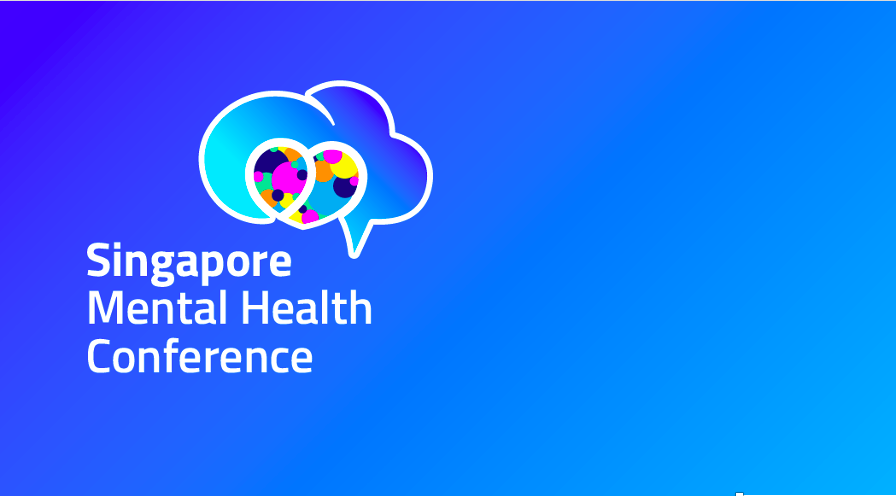By Q. Anuradha //
On 24 and 25 August 2021, The Tapestry Project attended the 6th Singapore Mental Health Conference which was jointly organised by the Institute of Mental Health (IMH), Agency for Integrated Care (AIC), Health Promotion Board (HPB) and National Council of Social Service (NCSS). The conference featured international speakers who shared their best mental health practices during COVID-19. It was illuminating to have the factors that contribute to employee well-being, often seen as a nebulous ideal, broken down: from autonomy, to being listened to, having appropriate flexibility, feeling safe in the job (physically and psychologically) and having sufficient work-life divide.
The conference was structured around 4 main pillars:
- Youth mental health and wellbeing
- Wellbeing@Work – a continuum approach
- Mental health and recovery
- Building resilience for future pandemics
In their welcome address, Advisory Committee Co-Chairpersons A/Prof Daniel Fung, CEO of IMH and Mr Tan Kwang Cheak, CEO of AIC highlighted that the pandemic has thrown mental health and wellness into sharp focus.
This has reduced the associated stigma as more felt the impact of long drawn uncertainty brought about by the pandemic and started seeking out help. A double-edge sword, this also led to increased stigma when those unwilling to follow pandemic-related regulations were automatically ascribed with having mental health issues.
// One thing has become indisputably clear: that there is no health without mental health. The conference is thus centred not just on responding to the immediate crisis of Covid-19, but also about preparing for the new normal in the longer-term. //
To do so, will require not just incremental changes, but a shift in paradigm – whole new ways of seeing and thinking about mental health and wellbeing, bringing us to the conference’s theme of “Future paradigms of mental health”.
A sense of belonging and community is crucial for mental wellbeing. Minister Masagos, Minister for Social and Family Development and Second Minister for Health, graced the occasion as Guest-of-Honour. In his speech, he highlighted how social distancing has interrupted our social routines and adversely impacted our fundamental human need for belonging and community, the increased prevalence of depression and anxiety related symptoms in the population over the past year, and a sense of emptiness and languishing (the middle state of flourishing and having a mental health condition) that many might have experienced over the course of the pandemic.
For me, it was reassuring to hear this experience has been a shared one, with hopefully the potential for greater empathy and understanding in the future around mental health issues with a greater proportion of the population having some lived experience. It is equally worrying to consider the longer-term efforts that must be made to tackle this hidden crisis across diverse sub-populations – from the privileged to foreign workers to the intellectually disabled.
Workplace Mental Health
I attended the sessions where wellbeing at work and building inclusive workplaces was explored in depth.
Prof. Dame Carol Black, Advisor to UK Government on Health, Work and Wellbeing asserts that it is time that organisations move towards adopting indicators that offer greater insight and accountability into employee wellbeing, for instance presenteeism instead of absenteeism.
Founder of Workwell Leaders Ms Anthea Ong also weighed in on the role of managers and organisational leaders in extending care and compassion, modelling vulnerability and authenticity and being able to direct employees to appropriate resources.

The Value of Lived Experiences
The conference was careful to balance sessions that offered insights into solutions with those that allowed for a deeper understanding of the complexities of mental health.
One such session was Myth vs Truth in Mental Health Disorders sponsored by Lundbeck Singapore Pte Ltd and Otsuka Pharmaceuticals (Singapore) Pte Ltd. Tapestry Project’s founder Nicole K. was a featured panellist alongside Dr Joseph Leong, Deputy Director, Community Mental Health Team, IMH and moderated by Ng Boon Tat, Principal Pharmacist, IMH.
The session took care to debunk myths around recovery, establishing that persons with mental illness can recover with the right treatment and support from professionals and personal caregivers, especially when shared decision making is utilised – respecting the agency of those with mental illness and empowering them to choose towards recovery.
Nicole’s frank and honest sharing about her journey with depression and the power of language in recrafting the stories we tell about ourselves was welcomed appreciatively by the audience – with some expressing an interest in Tapestry Project’s Re:Story programme, a journaling workshop series based on narrative therapy principles that enables participants to uncover and reframe their personal story. Nicole’s conviction in sharing spoke to her journey with overcoming internalised stigma about her condition as well as a growing disregard for potential social prejudice and differential treatment by others.
Similar themes were echoed in the closing plenary by Ms Constance Lien, Former National Swimmer, Jiu-Jitsu SEA Games Gold Medallist who shared her experiences with an eating disorder. It was a timely reminder that athletes are people too. For both Nicole and Constance, recovery was an individual unique process, much like it will be for everyone else on their own mental health journeys.
It may take time to find the right support that works for us: from a professional that we are comfortable with, trust and are willing to build a relationship with to surrounding ourselves with a community that will understand that we are hurting even if they can’t see it and choose to love and support us through it all. Indeed, this strongly resonates with Tapestry theme on being #worksinprogress; that we are worthy of the time it takes to heal our hearts and minds.

